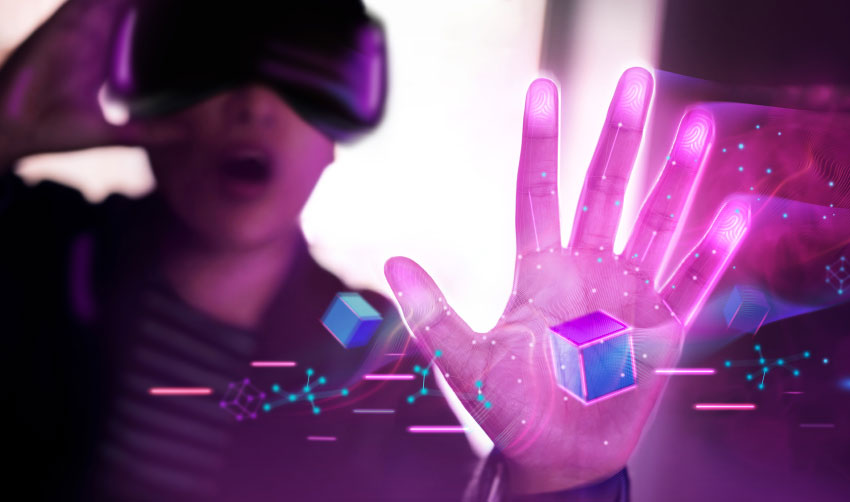
In a previous blog post, we discussed the meaning of Web3 and outlined definitions of a few key terms related to it. Now we’re ready to take on the Metaverse.
From our perspective, the Metaverse doesn't refer to a single digital “place” or a specific type of technology. It’s more of a shift in how we’ll perceive and interact with technology — putting yourself into a public virtual world via the Internet, for example. One way to think of it: cyberspace. (You might access the metaverse through virtual-reality or augmented-reality headsets, but that won’t necessarily be required.)
Companies are working on technology related to interacting with virtual worlds that more closely mimic our physical life, such as simulating human emotions and gestures. Some video games and social media giants are already referring to certain aspects of their products as “the metaverse.” But Wired had this to say about those virtual worlds:
“... the idea of a Ready Player One-like single unified place called “the metaverse" is still largely impossible. That is in part because that would require companies to cooperate in a way that simply isn't profitable or desirable — Fortnite doesn't have much motivation to give players a portal to jump straight over to World of Warcraft, even if it were easy to do so, for example —and partially because the raw computing power needed for such a concept could be much further away than we think.”
As we wait to see what the Metaverse becomes, here are some terms and their definitions to facilitate the conversation:
Virtual Continuum
The range of possibilities between our real, physical environment and a fully virtual, digital environment. You might think of it as levels of immersion, from Candy Crush through Ready Player One.
Extended Reality (XR)
A term that refers to all types of technology that change reality through digital elements and blur the line between the physical and the virtual.
Augmented Reality (AR)
The first, least immersive segment of the virtual continuum. Digital elements — video, graphics, sound — are presented over the view of the real world that change and adapt to the surroundings in real time. Examples of augmented reality include Pokémon Go and IKEA’s Studio app.
Mixed Reality (MR)
The second segment along the virtual continuum. MR is similar to augmented reality in that digital elements are blended with your physical environment to create a new space — the difference is that you can interact with all the elements in mixed reality, both digital and real. Mixed reality is still in the developmental phase, so there aren’t any widely known or widely available examples as of yet.
Virtual Reality (VR)
The final, most immersive segment of the virtual continuum. A computer-generated 3D environment where people can explore and interact with that environment. Headsets, special gloves, or other such equipment provide sensory input to your eyes, ears, and even your sense of balance to create the illusion of reality. Examples of virtual reality include Oculus Rift and Samsung Gear VR.
Virtual World
A computer-generated representation of a physical world where people can explore the world and interact with others who are “there.” Most often found in video games, examples of virtual worlds include Fortnite and Minecraft.
Avatar
A computer-generated representation of a person in the digital world. Avatars can be found in applications ranging from video games to online forums to chatbots.
Play-to-Earn
A business model in which people play online games to earn rewards that have some value in the real world and can be exchanged for real money. Rewards include things like in-game skins or weapons or virtual real estate.
Creator Economy
A business model in which online content creators (think artists, curators, influencers) receive payment for their work through ad revenue, product sales/partnerships, digital tipping platforms, etc. Patreon is one example of a creator-economy app.
Metaverse Marketplace
A platform for transactions that involve non-fungible tokens, or NFTs. Most of these transactions, which are conducted on blockchains, primarily center around art or video game assets today, but they’re also used for virtual real estate purchases or the ability to attend virtual events, among other things.
Contact Us
Ready to achieve your vision? We're here to help.
We'd love to start a conversation. Fill out the form and we'll connect you with the right person.
Searching for a new career?
View job openings

